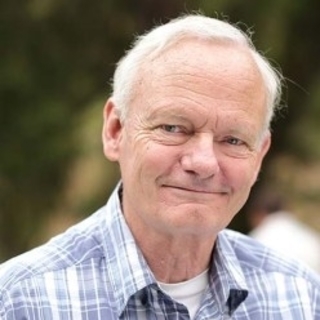
Arthur B. Robinson
Dr. Arthur B. Robinson served on the Board of Directors of The Heartland Institute from 2016 to 2019. He is also a senior fellow for environment policy at Heartland and the namesake of Heartland’s Arthur B. Robinson Center on Climate and Environmental Policy.
Beginning in 1997, Dr. Robinson, along with his son Noah, Dr. Frederick Seitz, Dr. Sallie Baliunas, Dr. Willie Soon, and others, organized the Petition Project, a statement firmly rejecting global warming alarmism eventually signed by more than 31,000 U.S. scientists. Dr. Robinson updated and re-issued the petition in 2007 and continues to maintain it as the world’s largest directory of scientists who reject global warming alarmism. The petition in its entirety reads,
We urge the United States government to reject the global warming agreement that was written in Kyoto, Japan in December, 1997, and any other similar proposals. The proposed limits on greenhouse gases would harm the environment, hinder the advance of science and technology, and damage the health and welfare of mankind.
There is no convincing scientific evidence that human release of carbon dioxide, methane, or other greenhouse gasses is causing or will, in the foreseeable future, cause catastrophic heating of the Earth’s atmosphere and disruption of the Earth’s climate. Moreover, there is substantial scientific evidence that increases in atmospheric carbon dioxide produce many beneficial effects upon the natural plant and animal environments of the Earth.
For more information about the Petition Project, go to www.petitionproject.org.
The Oregon Institute of Science and Medicine, founded in 1981, is a non-profit research institute devoted to conducting basic and applied research in subjects immediately applicable to increasing the quality, quantity, and length of human life. Research in the institute’s laboratories includes work in protein biochemistry, diagnostic medicine, nutrition, preventive medicine, and aging. The institute also carries out work on the improvement of basic education and emergency preparedness. The institute is entirely supported by donations and grants from private individuals and foundations and by the independent earnings and resources of its faculty and volunteers. It does not solicit or accept tax-financed government funds. For more information about OISM, go to www.oism.org.
Dr. Robinson also writes and edits Access to Energy, a newsletter that discusses scientific issues of special importance to the public interest. The text is written in layman’s terms and includes references to the scientific literature in support of the conclusions reached. Access to Energy was founded by Petr Beckmann in 1973 and published by him until his death in 1993. Dr. Robinson says of his readers and editorial philosophy, “We don’t ask them to trust and parrot us, we ask them to think.” For more information, go to www.accesstoenergy.com.
Dr. Robinson served as a faculty member of University of California at San Diego until co-founding the Linus Pauling Institute of Science and Medicine with Linus Pauling in 1973. Beginning with their initial work together on general anesthesia and the structure of water at Caltech in 1961, Pauling and Robinson carried out published research on a wide variety of topics from nuclear physics to nutrition until 1978. They ceased work together in 1978 because of a disagreement between them on the effects of ascorbic acid on the growth rate of cancer in mice.
Dr. Robinson received the “Voice of Reason” award at the Ninth International Conference on Climate Change (2014):
and presented at the Second International Conference on Climate change (2008):


